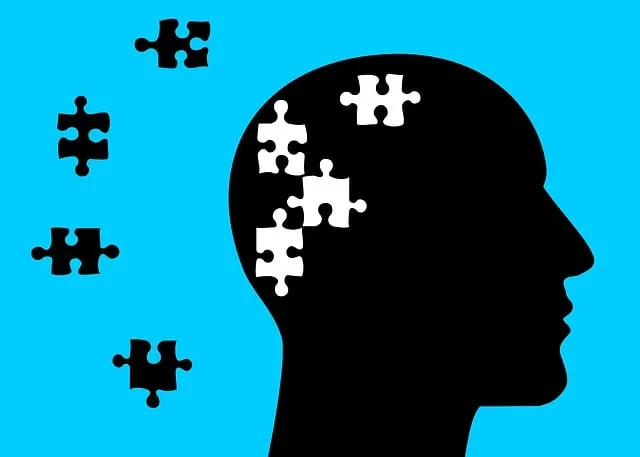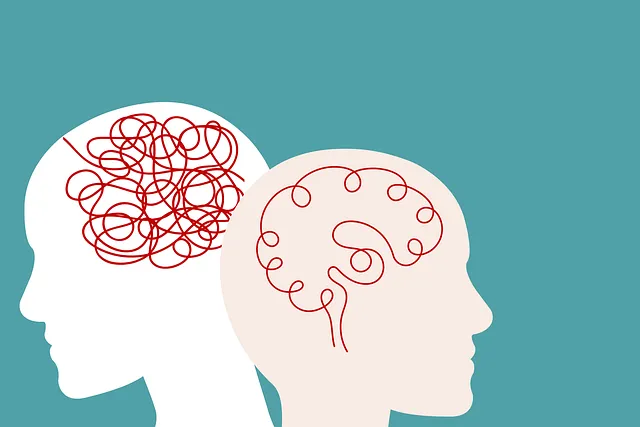The RFM framework, a therapeutic tool focusing on Relating, Functioning, and Meaning, enhances mental wellness in bustling areas like Centennial. Kaiser, with its holistic approach and over a century of experience, offers this method to empower individuals with emotional intelligence, improving their ability to navigate life's complexities. By implementing RFM techniques, therapists at Kaiser can provide tailored guidance for self-care practices, fostering resilience and flexibility among clients. Positive outcomes from various programs led by well-trained therapists demonstrate the effectiveness of these initiatives in building robust support systems for holistic wellness.
“Discover how the Revolutionary RFM (Resilience, Flexibility, and Mindfulness) framework is transforming therapy practices, especially within the esteemed Kaiser system, celebrating a century of therapeutic excellence. This article explores the profound impact of integrating RFM into clinical work, highlighting its benefits for both therapists and patients. From understanding the theoretical foundations to practical implementation steps, we delve into successful case studies, showcasing how Kaiser’s therapists empower individuals to build resilience and navigate life’s challenges with greater ease.”
- Understanding RFM: The Framework and Its Purpose in Therapy
- Kaiser's Approach to Resilience-Building Exercises: A Centennial Perspective
- Benefits of Implementing RFM in Clinical Practice
- Practical Steps for Integrating RFM into Therapy Sessions
- Case Studies: Success Stories from Kaiser's Patients
Understanding RFM: The Framework and Its Purpose in Therapy

The RFM framework—a therapeutic tool that stands for Relating, Functioning, and Meaning—is designed to help individuals navigate and enhance various aspects of their lives. This approach is particularly relevant when addressing mental wellness and emotional resilience, especially in a bustling environment like Centennial, where the pursuit of good therapy services is essential for many residents. By focusing on these three dimensions, therapists can provide tailored guidance to support clients’ self-care practices and overall emotional intelligence.
Understanding RFM as a therapeutic framework allows professionals to delve into each individual’s unique challenges and strengths. It encourages exploration of one’s relationships, how they function in different settings, and the deeper meaning they derive from life experiences. This comprehensive approach fosters personal growth and resilience, enabling individuals to navigate life’s complexities with enhanced emotional intelligence and effective self-care practices, ultimately contributing to improved mental wellness.
Kaiser's Approach to Resilience-Building Exercises: A Centennial Perspective

Kaiser has been at the forefront of resilience-building exercises for over a century, offering a holistic approach to mental health and wellness that has stood the test of time. Their methods focus on empowering individuals with self-care routines and emotional intelligence, fostering inner strength development that transcends challenges. This long-standing commitment to excellence ensures that Kaiser’s therapists are well-equipped to help patients navigate life’s complexities with resilience and adaptability. The organization’s enduring reputation for quality care is a testament to the effectiveness of their approach, making Kaiser a go-to choice for those seeking not just treatment but a lasting transformation in their mental health and overall well-being.
The implementation of resilience-building exercises within Kaiser’s framework goes beyond mere therapy; it encourages patients to take an active role in their self-care routine development for better mental health. By integrating emotional intelligence practices, individuals learn to recognize and manage their emotions effectively, a crucial skill for building inner strength. This centennial perspective on resilience underscores the importance of nurturing mental fortitude, ensuring that Kaiser’s patients are equipped with tools to thrive in an ever-changing world.
Benefits of Implementing RFM in Clinical Practice

Implementing RFM (Resilience, Flexibility, and Mastery) in clinical practice offers a multitude of benefits, especially for both therapists and their clients, as seen in top-tier institutions like Kaiser with good therapists in Centennial. By integrating RFM techniques, mental health professionals can significantly enhance their ability to support individuals dealing with trauma. This approach encourages clients to develop self-awareness exercises that foster resilience, enabling them to navigate life’s challenges more effectively.
Moreover, RFM promotes flexibility in thinking and behavior, which is crucial for adapting to unforeseen circumstances. The inclusion of Self-Awareness Exercises within the RFM framework aids in risk assessment for mental health professionals, ensuring they are well-equipped to handle complex cases. This holistic approach not only benefits individual clients but also contributes to better outcomes in trauma support services overall.
Practical Steps for Integrating RFM into Therapy Sessions

Integrating RFM (Resilience, Flexibility, and Mastery) into therapy sessions is a powerful approach to empowering individuals, especially those seeking support at Kaiser in Centennial. This method provides a structured framework for therapists to guide clients through challenging situations. The first step is to assess each client’s resilience level, understanding their coping mechanisms and strengths. Therapists can then tailor exercises to build flexibility by helping clients adapt to change and navigate uncertainties.
During sessions, practitioners encourage clients to develop mastery skills, fostering a sense of control and self-efficacy. Techniques like crisis intervention guidance and mental illness stigma reduction efforts can be woven into RFM practices. By combining these strategies, therapists create a supportive environment, enabling individuals to build resilience and cope effectively with life’s demands. This approach ensures that Kaiser’s therapists in Centennial offer comprehensive care, addressing both the symptoms and underlying strengths of their clients.
Case Studies: Success Stories from Kaiser's Patients

Many patients at Kaiser have shared success stories after participating in resilience-building exercises and RFM (Recovery-Focused Management) programs. These initiatives, facilitated by well-trained therapists, have significantly improved their ability to cope with stress, trauma, and everyday challenges. The positive outcomes highlight the effectiveness of these interventions in fostering mental wellness development.
For instance, some patients attending Stress Management Workshops within the organization have reported reduced anxiety levels and improved emotional regulation skills. Others who engaged in Trauma Support Services noted remarkable progress in processing past traumas and enhancing their overall resilience. Additionally, Mental Wellness Coaching Programs have empowered individuals to take charge of their mental health journeys, leading to sustained improvements in their quality of life. The success of these programs underscores the importance of such initiatives in building a robust support system for Kaiser patients’ holistic wellness.
The implementation of RFM and resilience-building exercises, as demonstrated by Kaiser’s approach, offers a powerful tool for therapists seeking to enhance their clinical practice. By understanding RFM’s framework and its purpose in therapy, professionals can unlock the benefits of fostering resilience in patients. The success stories shared through case studies highlight how this methodic approach can lead to profound positive changes. With a centennial perspective on resilience-building, Kaiser’s techniques prove that good therapists can indeed make a lasting impact, enabling clients to navigate life’s challenges with enhanced strength and adaptability.






